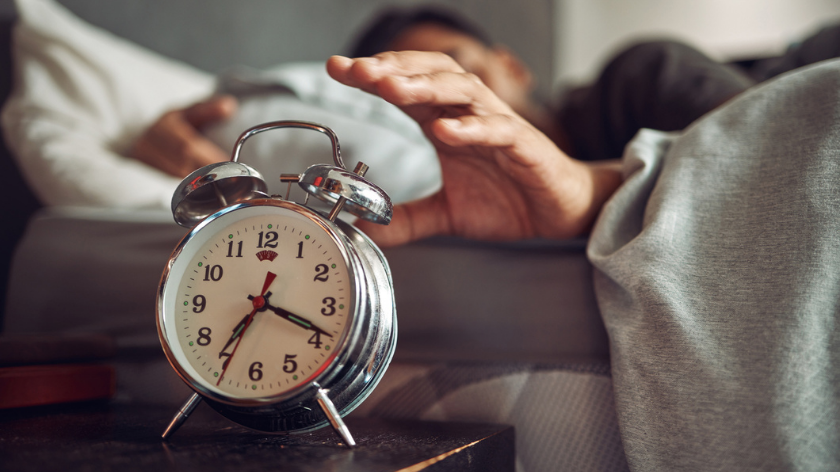Hygiene isn’t just about brushing your teeth or washing your hands – here are some ways to improve your sleep hygiene.
“I always get enough sleep every night,” said no one ever! The list of reasons why we miss out on sleep can be a long one. Screens. Stress. Light “pollution” from streetlights. Maybe even a partner who snores. While there are some things out of your control, you have many things you can control that can help you get a better night’s sleep.
Do you know about sleep hygiene? Sleep hygiene is all the things you can do to promote a good night of sleep. Improving your sleep hygiene can mean making changes to your behavior. It can also mean changing your environment. Some changes might be easier and some harder, but if you try to move in the right direction, you will achieve at least some success. Let’s start with the habits you can adopt that will promote better sleep hygiene.
Wake up at around the same time
Creating a schedule is a way to make sleep an essential part of your day. You can do this by trying to wake up at approximately the same time each day—even on weekends. A regular schedule helps your body (and brain) get into a rhythm where sleep is an expected and normal part of the routine.
Set a target bedtime
Setting a bedtime helps you make sleep a defined part of your day. You do not have to be in bed at exactly the same time every night, but aiming for a specific time will help you define part of your 24-hour day for sleeping.
Create a bedtime routine
Parents might already understand the power of a bedtime routine. Using a routine is one way to help your brain know what comes next without even thinking about it. A routine will signal your brain that bedtime is nearing, which can help it be ready for sleep. For example, try to set aside 30-60 minutes before bedtime to wind down – stop watching television, switch off screens, and even dim the lights. You can also try certain activities that we know are relaxing, including yoga, stretching or meditation.
You can also try to create an environment that promotes sleep. Not everyone will be able to control all the elements of their environment—for example, we can’t switch off bright streetlights outside your bedroom—but there are ways to get around some of the more challenging obstacles.
Block out as much light as you can
Switch off outside lights you can access, but if you have persistent outside lights such as streetlights, you might need heavier curtains or blinds. An easier but perhaps effective option is to find a comfortable sleep mask to cover your eyes.
Reduce bedroom noise
Closing a door or ensuring the rest of the house is quiet can be part of your routine and will also promote a peaceful environment. If you cannot escape external—or internal—noise, consider a white noise machine or using a fan to create white noise. White noise will help cancel out noises you can’t always eliminate.
Use comfortable bedding
It might go without saying, but comfortable bedding is essential – and it need not be expensive. Try to think of bedding as an investment and not something you can do without. It is likely you will get years of use from it before it needs to be replaced. This includes your mattress and pillows.
Cooler temperatures promote sleep
The experts tell us around 65F degrees is the target temperature, but we all prefer different room temperatures. When setting your own bedroom temperature, err on the cooler side.
The basic idea of sleep hygiene is the same for everyone: adopt habits and create an environment that promotes sleep. However, in practice, it will look different for each person, and that is ok. Implement small changes one at a time to find out what helps you improve your sleep hygiene. This can help you understand if something is working—or not—and whether you should keep doing it or abandon that approach. But never stop trying to get a better night’s sleep!
Want to learn more? Check out the National Sleep Foundation.
With a PhD in Exercise Physiology, Jonathan Dugas spends his days thinking about how we can help more people be more active. With four Ironman finishes and 13 marathons and counting, he’ll see you out on the road.






